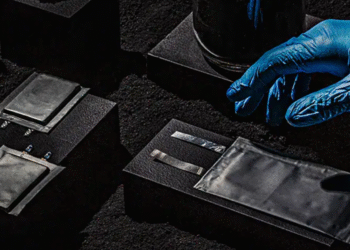Helsing, the artificial intelligence defence technology startup out of Germany known for being one of the key suppliers of air-based drone technology to Ukraine among others, today took a big plunge into expanding in the marine sector. It is acquiring Blue Ocean, an Australian company that develops autonomous underwater vehicles and other submarine technology.
Blue Ocean had been working with Helsing for at least a year now, including in a maritime partnership to build and supply hardware and other services to the UK and its allies — part of Helsing’s bigger bid to build out stronger subsea capabilities to meet growing demand in that area.
“If we win the orders we expect, the two companies will grow from strength to strength,” a source said. “We see a lot of potential given the shared challenges in maritime security in Europe and with AUKUS partners.”
Financial terms of the deal have not been disclosed; we are continuing to look for more detail on this and will update the story if we find out more.
In the meantime, since Blue Ocean is based in Australia, the deal is being structured as a “members’ scheme of arrangement”, where Helsing will exchange cash and/or shares for 100% of Blue Ocean, pending approval from at least 75% of Blue Ocean’s shareholders, plus court and regulatory approval.
It’s not clear if Blue Ocean Maritime Systems — which has previously been called Blue Ocean Monitoring and Blue Ocean Seismic Services (and worked with oil and gas companies) — had outside investors. Helsing said that it will continue Blue Ocean’s current operations, which are based in both Australia and the United Kingdom.
Blue Ocean has between 20 and 30 employees, per LinkedIn data, and the UK team is already working “closely” with Helsing in Plymouth, a source says. Helsing is building an R&D and production facility in the naval city to develop marine systems. That in turn is part of a larger £350 million commitment the company has made to investing in its UK business.
The Blue Ocean team based in Perth will continue to operate as a standalone subsidiary of Helsing after the deal closes, “focused on the same markets and customers as before,” the source said.
Helsing is the most valuable defence technology startup in Europe, worth more than $13 billion after raising $1.5 billion in outside funding from investors such as Daniel Ek’s Prima Materia, Accel and General Catalyst, among others.
For some further context on what kinds of valuations the new wave of defence tech companies are fetching, QinetiQ — another company in the marine partnership that Helsing announced earlier this year that also included Blue Ocean and US-based Ocean Infinity — is publicly traded in the UK and had a market cap of more than $3.6 billion at the close of trading yesterday. (And yes, that’s rising today…)
One if by land, two if by sea
Helsing has been doubling down on expanding what it is doing in the air, with a Systematic partnership to improve its swarming offering (where many drones can be operated in unison, a key component of how Ukraine and Russia are engaging in combat currently); and the unveiling of a new fighter jet, the CA-1 Europa. The latter came by way of R&D gleaned from an acquisition earlier this year, of GroB.
This latest acquisition of Blue Ocean underscores the attention that Helsing is putting on subsea defences as it grows to fill out its valuation. That focus that lines up with a growing concern around how adversaries are developing their own capabilities and activities in the water to disrupt communications and energy infrastructure, build weapons and more.
Earlier this year, Russian submarines were spotted hovering over subsea cables in UK waters. The situation was diffused, but it left the UK government acutely aware of the need for better response and preparedness in the future.
Helsing has also been expanding its own in-house marine technology, releasing of an acoustic detection system called Lura in May and launching an autonomous underwater glider, the SG-1 Fathom, in July.
The deal is a reminder, however, of how the strongest defence systems will tap a wider network of knowledge beyond a company’s own R&D — although those with the deepest pockets will make efforts to bring more of that know-how in house.
“The need for a smart autonomous mass-approach is clear, and together with Blue Ocean we can build an autonomous glider that provides a big leap forward to conduct underwater ISR for navies,” said Amelia Gould, General Manager, Maritime at Helsing, in a statement. “Blue Ocean has been a key partner for us over the last 12 months and as we seek to significantly strengthen our maritime offer to Europe and AUKUS it makes sense for us to join forces. Together we can offer customers a unique blend of domain expertise, rapid innovation and advanced technology.”
Blue Ocean was founded by Ben Hollings, who remains its chief product officer, but it was Mike Deeks, its group MD at Blue Ocean, providing a statement on the acquisition. “Since first meeting Helsing we have forged a strong working relationship bringing together our Autonomous Underwater Vehicle technology with Helsing’s impressive Edge AI processing to create a highly effective anti-submarine warfare and wide area surveillance capability,” he said. “These are critical to compilation of the modern common operating picture and providing border and asset protection.”












